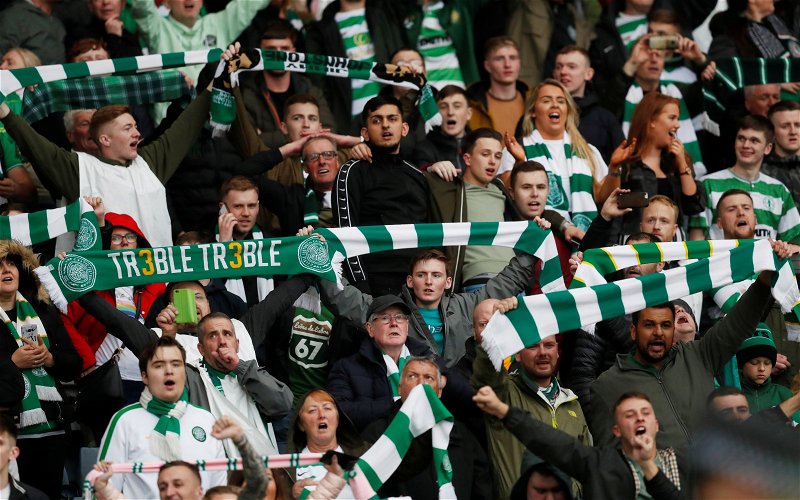I wrote a piece just the other week about The Celtic Trust being the one fan group that has taken a lead.
This was before the commendable statement from the Irish Association, who made their own feelings very clear.
The Trust are an impressive bunch.
But they’ve taken their first misstep and I would be amazed if some of their more prominent members didn’t already have their heads in the hands over it.
David Low went on the record yesterday as saying that the club is facing a “rebellion” over season ticket renewals, and then he pulled his own organisation back from having any involvement in it.
There are two reasons I find this quite incredible, but let’s do this first; let’s give David Low some benefit of the doubt because it may be that all he’s saying that it’s not the job of The Trust to organise mass boycotts or anything like that … and he’s correct, of course. They are a shareholders group, and not an actual rank and file fan organisation.
It’s also probably not strictly kosher for a shareholder’s organisation to suggest that the customers deprive said organisation of money.
So there may even be a legal element to what he was saying yesterday.
Nevertheless, any hope of a campaign bringing folk together in a united front has been lost already because one group has said “If that’s the path, count us out.”
What realistically could he have said otherwise?
Nothing at all.
The Trust may not be legally capable of supporting a boycott, but he spoke too soon when he said they would have nothing to do with it. There are ways of giving tacit approval to a strategy without openly offering it backing.
All he had to do was stay silent on that element of it. Everything else in the statement was spot on.
Yet the only people who will have taken heart from that statement are the board.
They would have known the legal position of the Trust on this, but to have them specifically talk down the idea would have been something the club never expected in their wildest dreams.
The Trust needs to appeal to the widest possible base amongst the fans if their objectives are to be properly met.
Now a lot of people are going to look at them as a “prawn sandwich” body who have already pledged to keep on buying their tickets come what may.
That weakens their negotiating position with the club right out of the gate.
Every serious organisation that ever had to sit across the table from rivals or enemies or vested interests had weapons at hand in case the talks broke down.
The only organisations who attend those things unarmed are those which have already surrendered.
Some of these folks will not go willingly, they are going to need to be strong-armed out.
Doing so requires that the fans take action, but what sort?
Doing a Marseille and burning down the training ground? Of course not.
None of us enjoyed that unedifying spectacle of players running a gauntlet out of Celtic Park; that’s not who we are.
The one weapon fans have available to them is to withdraw their financial support.
What’s more, David Low knows this is the case, because it’s precisely the sort of leverage we used once before in bringing down the White’s and Kelly’s.
Yet Low’s statement – speaking for the organisation – was to say that, “The Celtic Trust will have nothing to do with boycotts or refusing to buy season tickets.”
It is inconsistent with the campaign which previously succeeded.
It is inconsistent with the message he was sending in the greater part of the statement, which was to remind the board that renewals are coming up and that fans were angry.
To me it un-necessarily diluted the strength of what he was saying, which is a shame as the rest was on the nose.
David Low is a smart guy.
He may well be kicking himself today for having removed one of his own pieces from the chessboard.
Then again, he may believe that the wider point is the one that matters; that the board itself must realise how precarious this is.
His central point about the non-executive directors was excellent … and that’s worthy of some further exploration, and it’s pretty much in line with what I wrote earlier in the month.
It is one of the key areas we should be all be focussed on.
